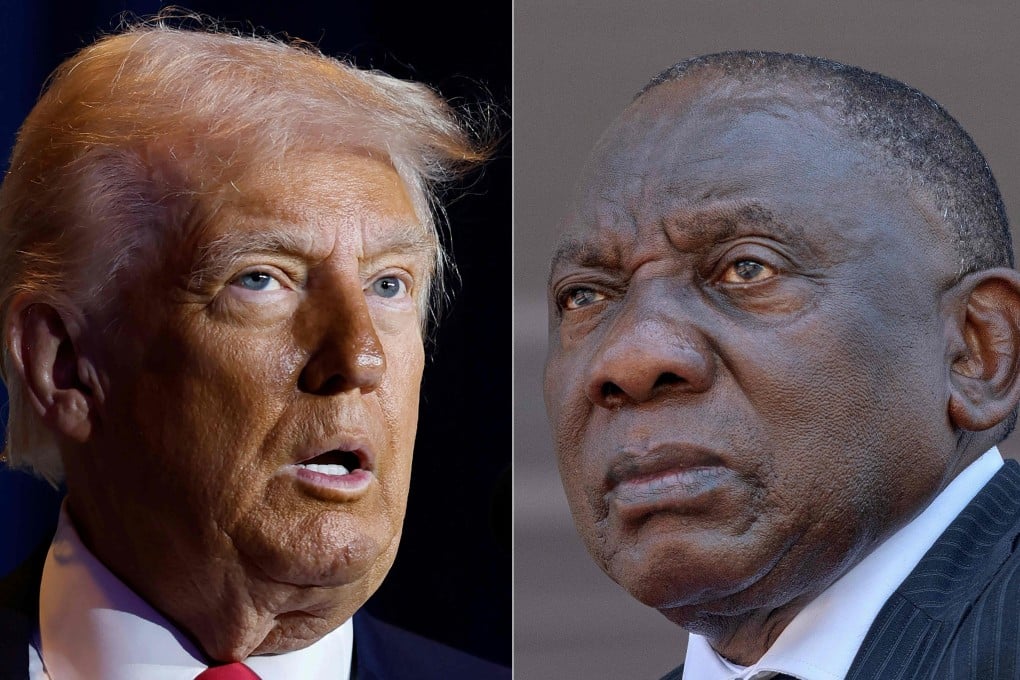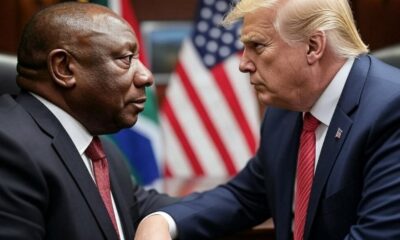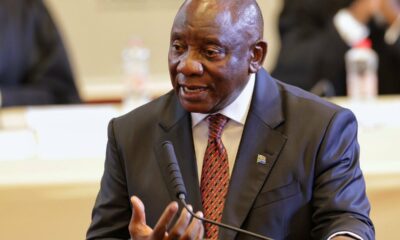411
Why the US Sanctions Bill Against South Africa Is Likely to Fail

A new bill introduced in the United States Congress aims to sanction South African politicians and review the entire US-South Africa relationship — but it’s highly unlikely to become law.
The bill, titled the US-South Africa Bilateral Relations Review Act of 2025 (H.R.2633), was introduced on April 3, 2025, by Republican Representative Ronny Jackson. It calls for sanctions on “corrupt South African officials” and criticises South Africa’s ties with China, Russia, Iran, and Hamas.
While the bill has made headlines, its actual prospects in Congress are slim. According to GovTrack.us, a respected nonpartisan platform that tracks legislation, the bill has only a 7% chance of passing committee and just a 1% chance of becoming law.
A Bill Going Nowhere
The bill has been referred to the House Committee on Foreign Affairs and the Committee on the Judiciary, but no hearings or votes have been scheduled. It also has no companion bill in the Senate—a major sign that it lacks serious legislative support.
Professor John Stremlau, an honorary professor of International Relations at Wits University and former US State Department official, was blunt:
“This bill is a nonstarter in the House itself… and has no prospect in the Senate where it would be filibustered by the Democrats. It’s a dead-in-the-water undertaking.”
Stremlau also pointed out that House Speaker Mike Johnson has shown no interest in prioritising this kind of foreign policy legislation, especially during a budget-constrained year.
Political Drama, Not Policy
The sanctions bill reflects broader tensions between President Trump’s administration and the South African government. Since returning to office in January, Trump has taken an increasingly hard line against South Africa, slashing foreign aid and publicly criticising its domestic and foreign policies.
Secretary of State Marco Rubio recently skipped a G20 meeting hosted by South Africa, citing “anti-Americanism,” while State Department spokesperson Tammy Bruce accused South Africa of discriminating against minorities and pursuing hostile alliances.
The administration has also:
-
Cut funding to HIV/AIDS programmes
-
Offered expedited refugee status to Afrikaners
-
Temporarily imposed 30% tariffs on South African goods
-
Expelled South Africa’s ambassador to Washington
And yet, experts say these moves are largely symbolic and not grounded in long-term strategy.
“There’s no rational explanation for such a hard line,” said Stremlau. “It seems driven more by political messaging than coherent foreign policy.”
South Africa Responds
President Cyril Ramaphosa has publicly expressed concern about the US’s “mischaracterisation” of South African policies. He recently spoke to Trump by phone and said the two leaders have agreed to meet in person to try and ease tensions.
Meanwhile, the Department of International Relations and Cooperation (DIRCO) has criticised the US’s refugee offer to Afrikaners, calling it “politically motivated” and an insult to South Africa’s democratic progress.
“We are a constitutional democracy. The idea that we are persecuting anyone is simply false,” said a DIRCO spokesperson.
The Bigger Picture: AGOA and Trade at Risk
One of the more significant threats from Washington involves South Africa’s participation in the African Growth and Opportunity Act (AGOA), which gives South African goods duty-free access to US markets.
If relations deteriorate further, AGOA could be suspended—something that would hit the South African economy hard. However, experts believe this is still unlikely unless the current standoff escalates dramatically.
The US-South Africa sanctions bill may grab headlines, but it’s not likely to change policy or become law.
It’s part of a broader trend of politically motivated foreign policy gestures under Trump’s presidency, but as experts and legislative trackers confirm, the bill is almost certainly headed nowhere.
That said, the diplomatic relationship remains tense—and the risks for trade and cooperation are real. Whether calm heads can prevail remains to be seen.
US Lawmakers Move to Sanction South Africa Over Ties With China, Russia and Iran
{Source: BusinessTech}
Follow Joburg ETC on Facebook, Twitter , TikTok and Instagram
For more News in Johannesburg, visit joburgetc.com



























